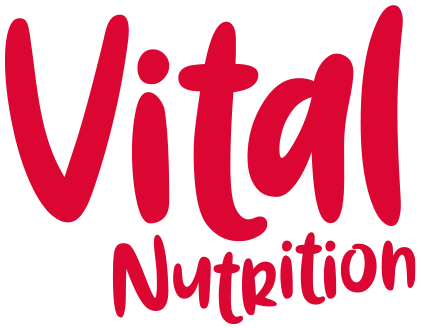Menopause demands a lifestyle change
Menopause is a hot topic. It is defined as the time in a woman’s life when her periods have stopped for one year, but women can be struggling with symptoms long before this. Symptoms of menopause typically affect women between the ages of 45 and 55. Of course, some women will experience an early menopause, and this can be because of surgery, genetics or a medical condition.
Thanks to Davina McCall and other high-profile celebrities highlighting how menopause is affecting them, we have become familiar with the term perimenopause. This is when women start to feel the mental, emotional and physical effects of fluctuating hormone levels.
It is great to see the conversation opening up around menopause, and more awareness that it is about a whole lot more than just the occasional hot flush or night sweat.
Menopause will affect everyone differently and no two women will be hit with exactly the same symptoms. Officially there are 34 symptoms of menopause, including:
a change in your periods - this does not always mean lighter or less frequent periods. For many periods can become more frequent and heavier.
mood changes
changes in sleep pattern
poor memory or concentration
joint pain and muscle aches
headaches or migraines
palpitations
weight gain and changes in body shape
dry and itchy skin
low libido
When it comes to diet, there are a few things that we can change that can have a really big impact on how manage symptoms of the menopause. Do one thing at a time, as a pace that suits you. Rather than a quick fix diet, think about this as a lifestyle change. Here are my top tips:
Cut back on carbs
If your body shape has started to change as you approach menopause, you are not alone. Changes in sex hormones influence our blood glucose and insulin balance, meaning that we can't get away with eating as much bread, pasta and sugary snacks.
Drop the white, refined, high sugar carbs from your diet.
Swap over to wholegrains but don’t overload your plate with spuds, rice and pasta.
Rebalance your plate to have more vegetables and protein, and drop your carbohydrate portion to no more than quarter of your plate.
2. Eat enough healthy fats
Fats are essential for hormone balance. Include oily fish like salmon and mackerel a coupe of times a week, and add seeds (especially flaxseeds) to your daily diet.
Add a splash of olive oil where you can (to salads, steamed veg or soups) and swap your processed margarine to butter.
3. Up your protein
Keep your protein levels up to help with muscle form, appetite control and hormone balance. Aim for a palm size portion with every meal. This can be animal based - eggs, meat, fish, natural yoghurt, cheese, or plant-based - beans, lentils, nuts, seeds, quinoa.
4. Pack in the brassicas
Brassica vegetables like broccoli, cabbage, cauliflower, kale and brussel sprouts can help support the healthy metabolism of hormones. Aim for at least one fist-size portion every day. Shredded, steamed, stir-fried, or added to soups, stews and curries. Any way you like them.
5. Add a daily dose of flaxseed
Flaxseed is a bit of a super hero when it comes to hormone balance. Packed with plant based hormone balancers called lignans, a daily dose of flaxseed can be an important part of your nutritional toolkit for managing menopause symptoms. Local brand, Linwoods have a new product called Menoligna that has a higher concentration of lignans, as well as added calcium, vitamin D and magnesium for bone support and coQ10 and B vitamins for energy and supporting the function of our nervous system.
6. Rethink your drinks
Cutting back on caffeine and alcohol should be part of your plan to help support mood, manage sleep and reduce the load.
This blog post first appeared as my column in The Irish News on Saturday 29th October 2022.

